
Reginald Pole was an English cardinal and the last Catholic archbishop of Canterbury, holding the office from 1556 to 1558, during the Counter-Reformation.

Hugh Todd Naylor Gaitskell was a British politician who served as Leader of the Labour Party and Leader of the Opposition from 1955 until his death in 1963. An economics lecturer and wartime civil servant, he was elected to Parliament in 1945 and held office in Clement Attlee's governments, notably as Minister of Fuel and Power following the bitter winter of 1946–47, and eventually joining the Cabinet as Chancellor of the Exchequer. Facing the need to increase military spending in 1951, he imposed National Health Service charges on dentures and spectacles, prompting the leading left-winger Aneurin Bevan to resign from the Cabinet.
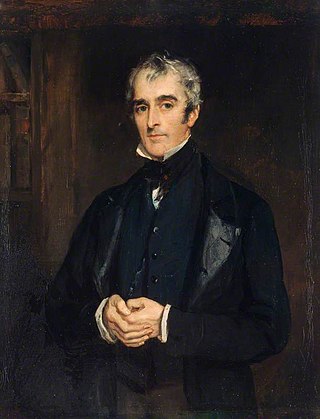
John Gibson Lockhart was a Scottish writer and editor. He is best known as the author of the seminal, and much-admired, seven-volume biography of his father-in-law Sir Walter Scott: Memoirs of the Life of Sir Walter Scott, Bart. He produced four novels in the early 1820s including Adam Blair and Reginald Dalton.
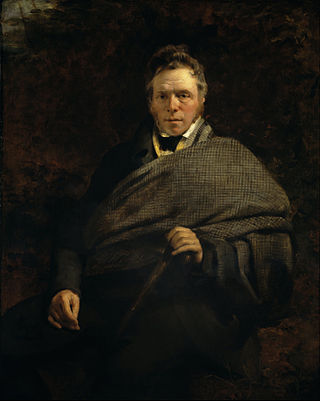
James Hogg was a Scottish poet, novelist and essayist who wrote in both Scots and English. As a young man he worked as a shepherd and farmhand, and was largely self-educated through reading. He was a friend of many of the great writers of his day, including Sir Walter Scott, of whom he later wrote an unauthorised biography. He became widely known as the "Ettrick Shepherd", a nickname under which some of his works were published, and the character name he was given in the widely read series Noctes Ambrosianae, published in Blackwood's Magazine. He is best known today for his novel The Private Memoirs and Confessions of a Justified Sinner. His other works include the long poem The Queen's Wake (1813), his collection of songs Jacobite Relics (1819), and his two novels The Three Perils of Man (1822), and The Three Perils of Woman (1823).
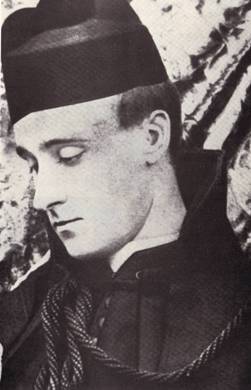
Frederick William Rolfe, better known as Baron Corvo, and also calling himself Frederick William Serafino Austin Lewis Mary Rolfe, was an English writer, artist, photographer and eccentric.

Samuel Wilberforce, FRS was an English bishop in the Church of England, and the third son of William Wilberforce. Known as "Soapy Sam", Wilberforce was one of the greatest public speakers of his day. He is now best remembered for his opposition to Charles Darwin's theory of evolution at a debate in 1860.

William Cosmo Gordon Lang, 1st Baron Lang of Lambeth, was a Scottish Anglican prelate who served as Archbishop of York (1908–1928) and Archbishop of Canterbury (1928–1942). His elevation to Archbishop of York, within 18 years of his ordination, was the most rapid in modern Church of England history. As Archbishop of Canterbury during the abdication crisis of 1936, he took a strong moral stance, his comments in a subsequent broadcast being widely condemned as uncharitable towards the departed king.
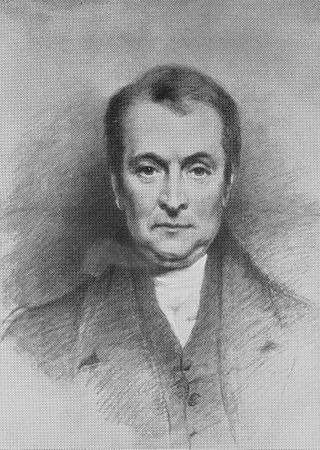
John Kidd was an English physician, chemist and geologist who took a leading role in Oxford's "scientific awakening" in the early years of the nineteenth century.

St Mary Hall was a medieval academic hall of the University of Oxford. It was associated with Oriel College from 1326 to 1545, but functioned independently from 1545 until it was re-incorporated into Oriel College in 1902.

Sir James Haldane Stewart Lockhart, was a British colonial official in Hong Kong and China for more than 40 years. He also served as Commissioner of British Weihaiwei from 1902 to 1921. Additionally, he was a Sinologist who made pioneering translations.

Reginald Fitz Jocelin was a medieval Bishop of Bath and an Archbishop of Canterbury-elect in England. A member of an Anglo-Norman noble family, he was the son of a bishop, and was educated in Italy. He was a household clerk for Thomas Becket, but by 1167 he was serving King Henry II of England. He was also a favourite of King Louis VII of France, who had him appointed abbot of the Abbey of Corbeil. After Reginald angered Becket while attempting to help negotiate a settlement between Becket and the king, Becket called him "that offspring of fornication, that enemy to the peace of the Church, that traitor." When he was elected as a bishop, the election was challenged by King Henry's eldest son, Henry the Young King, and Reginald was forced to go to Rome to be confirmed by Pope Alexander III. He attended the Third Lateran Council in 1179, and spent much of his time administering his diocese. He was elected Archbishop of Canterbury in 1191, but died before he could be installed.
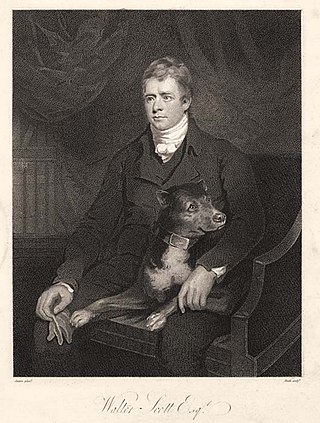
Minstrelsy of the Scottish Border is an anthology of Border ballads, together with some from north-east Scotland and a few modern literary ballads, edited by Walter Scott. It was first published by Archibald Constable in Edinburgh in 1802, but was expanded in several later editions, reaching its final state in 1830, two years before Scott's death. It includes many of the most famous Scottish ballads, such as Sir Patrick Spens, The Young Tamlane, The Twa Corbies, The Douglas Tragedy, Clerk Saunders, Kempion, The Wife of Usher's Well, The Cruel Sister, The Dæmon Lover, and Thomas the Rhymer. Scott enlisted the help of several collaborators, notably John Leyden, and found his ballads both by field research of his own and by consulting the manuscript collections of others. Controversially, in the editing of his texts he preferred literary quality over scholarly rigour, but Minstrelsy of the Scottish Border nevertheless attracted high praise from the first. It was influential both in Britain and on the Continent, and helped to decide the course of Scott's later career as a poet and novelist. In recent years it has been called "the most exciting collection of ballads ever to appear."
Nathan Wetherell D.D. (1726–1808) was an academic administrator at the University of Oxford. He was Dean of Hereford, Master of University College, Oxford and Vice-Chancellor of Oxford University.
The American Senator is a novel written in 1875 by Anthony Trollope. Although not one of Trollope's better-known works, it is notable for its depictions of rural English life and for its many detailed fox hunting scenes. In its anti-heroine, Arabella Trefoil, it presents a scathing but ultimately sympathetic portrayal of a woman who has abandoned virtually all scruples in her quest for a husband. Through the eponymous Senator, Trollope offers comments on the irrational aspects of English life.
John Davison (1777–1834) was an English clergyman and academic, known as a theological writer.
Godfrey Faussett (c.1781–1853) was an English clergyman and academic, Lady Margaret Professor of Divinity at Oxford from 1827. He was known as a controversialist. As a churchman he exemplified the high-and-dry tradition.
Michael George Brock was a British historian who was associated with several Oxford colleges during his academic career. He was Warden of Nuffield College, Oxford, from 1978 to 1988.
The Aldrichian Chairs were professorial positions at the University of Oxford during the nineteenth century, endowed by George Oakley Aldrich. His will left the residue of his estate to Oxford, to found in equal parts three chairs. By the 1850s the funds amounted to over £12,000. The handling of the chairs, however, was not of free-standing professorships, and by the end of that decade the funds had been repurposed.

Letters on Demonology and Witchcraft Addressed to J. G. Lockhart, Esq. (1830) was a study of witchcraft and the supernatural by Sir Walter Scott. A lifelong student of folklore, Scott was able to draw on a wide-ranging collection of primary and secondary sources. His book found many readers throughout the 19th century, and exercised a significant influence in promoting the Victorian vogue for Gothic and ghostly fiction. Though on first publication it met with mixed reviews, it is now recognised as a pioneering work of scientific anthropology, treating of its subject in an acute and analytical way which prefigures later scholarship on the subject, as well as presenting a highly readable collection of supernatural anecdotes.
The Association for the Education of Women or Association for Promoting the Higher Education of Women in Oxford (AEW) was formed in 1878 to promote the education of women at the University of Oxford. It provided lectures and tutorials for students at the four women's halls in Oxford, as well as for female students living at home or in lodgings and was dissolved in 1920 when women were admitted as members of the university.














